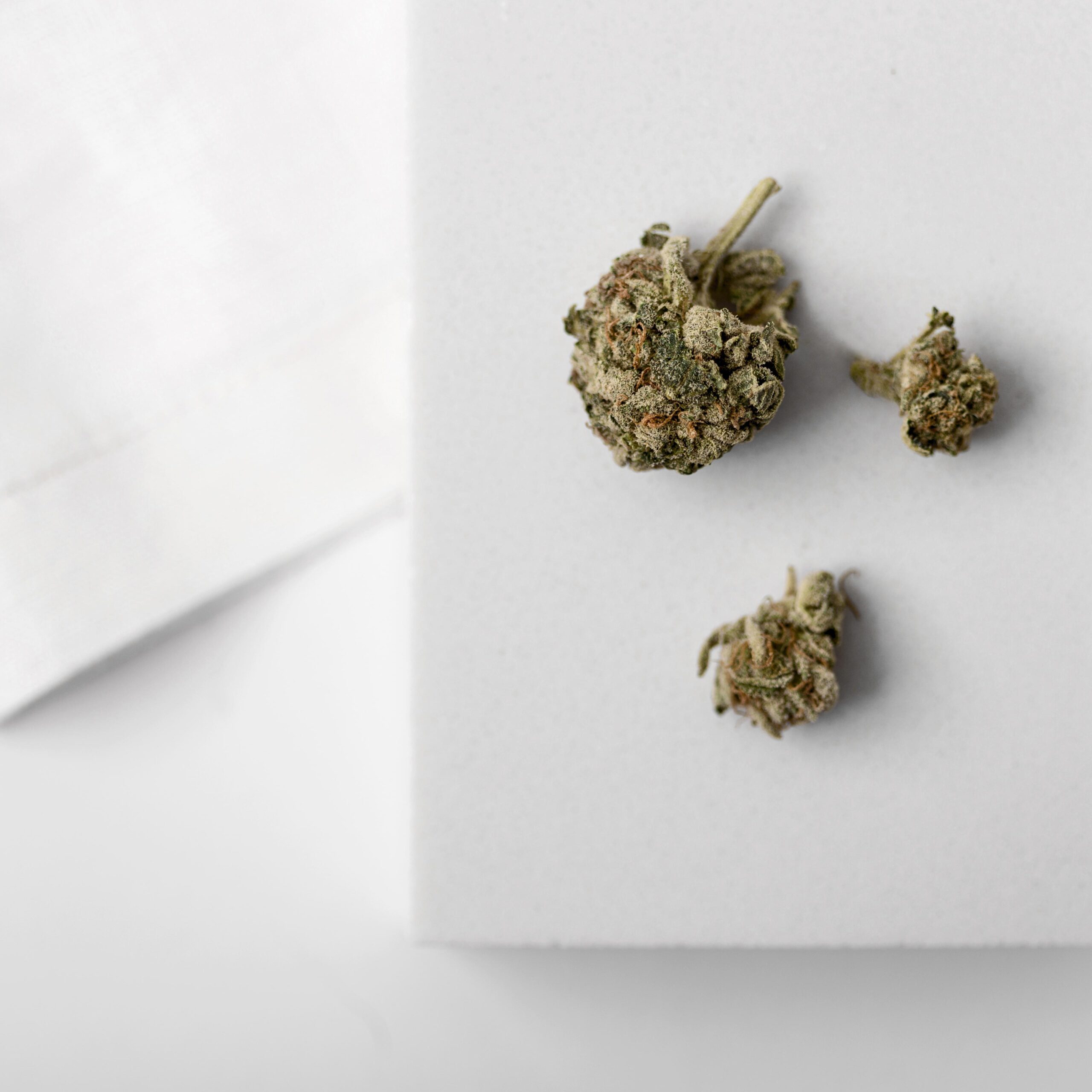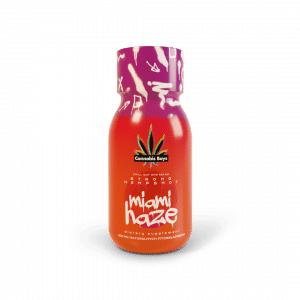The legality of cannabis and CBD in Poland and the EU in 2025 is a dynamic and evolving topic that is generating a lot of excitement among consumers, patients and businesses. In Poland, where the Anti-Drug Addiction Act remains the cornerstone of regulation, CBD products are fully legal as long as they are low in THC, while recreational marijuana remains banned. In the European Union, the landscape varies, from full legalization in Germany and Malta to depenalization in the Czech Republic.
This guide will discuss the key differences between CBD and THC, current laws, penalties for violations, and projections for 2025, based on official laws and reports. If you're looking for answers to questions like "the legality of CBD in Poland 2025" or "whether cannabis is legal in the EU," you'll find comprehensive information to help you avoid legal pitfalls and understand how the law is evolving in the context of the growing interest in cannabinoids.
Differences between CBD and THC - Legal basis
CBD (cannabidiol) and THC (tetrahydrocannabinol) are the two main cannabinoids from cannabis, but their legal status and effects are dramatically different. CBD is non-psychoactive, meaning it does not induce euphoria or a "high," and its potential benefits include relief of anxiety, pain and inflammation. In Poland and the EU, CBD is treated as a dietary supplement or cosmetic, provided its THC content does not exceed 0.2% (0.3% in some sources). THC, on the contrary, is psychoactive and responsible for intoxicating effects, making it a controlled substance.
In Poland's anti-drug law, THC is classified as a narcotic, and its possession without a medical prescription is punishable. This difference affects accessibility: CBD can be purchased without a prescription in stores, pharmacies or online, while THC is only available in the form of medical marijuana. In 2025, this dichotomy remains crucial, as the EU emphasizes that CBD is not a drug, making it easier to market, but THC is strictly restricted due to the risk of abuse.
Legality of CBD and hemp in Poland - Current legislation
In Poland, the legality of CBD is clearly defined: products with CBD are legal if the THC content does not exceed 0.2-0.3%, as stipulated by the 2005 Act on Counteracting Drug Addiction (with amendments). CBD can be sold as dietary supplements, oils, creams or drinks, without a prescription, as evidenced by the growing number of stores and pharmacies offering these products. Fiber hemp (with low THC content) is legal to grow for industrial, chemical or cosmetic purposes, but requires a permit. Recreational marijuana remains illegal - possession, cultivation or trafficking of THC without a medical justification is prohibited.
Full legalization has not been implemented in 2025, despite discussions in the Diet to decriminalize possession of up to 15 grams. Medical marijuana has been available by prescription since 2017, but only in pharmacies, which limits availability. The penalty for possession of THC is up to 3 years in prison and up to 10 years for trafficking, which makes users have to be careful, especially with borderline products like dried CBD.
Legality of hemp and CBD in the European Union - Differences between countries
In the European Union, the legality of hemp and CBD is not uniform, due to the lack of a common drug policy - each country regulates independently, although the EU sets the framework for fiber hemp and CBD. CBD is legal in most EU countries as a supplement, provided THC is below 0.2%, which allows free circulation within the single market. THC is classified as a drug, but countries differ in their approach:
Germany legalized recreational marijuana (up to 25 grams of possession and 3 plants of cultivation) in 2024, and is extending this to cannabis clubs in 2025. Malta allows 7 grams of possession and 4 plants, and Luxembourg allows 3 grams. The Czech Republic has decriminalized possession to 10 grams, meaning no penalty for small amounts. Poland remains conservative, with a ban on recreational but medical access. The EU is monitoring these changes in 2025, warning of the risk of abuse, which is influencing discussions about harmonizing the law.
Legal changes in 2025 - What's new in Poland and the EU?
The year 2025 brings an evolution, but not a revolution in cannabis legality. In Poland, the Sejm's Petitions Committee referred a marijuana decriminalization bill to Prime Minister Tusk, proposing no penalty for possession of up to 15 grams and cultivation of a single plant, although it was not adopted until July 2025. Discussions about liberalization continue, but the Anti-Drug Addiction Act remains the basis, with an emphasis on medical marijuana.
In the EU, Germany is developing a model for cannabis clubs, and the Netherlands is regulating coffeeshops, limiting sales to licensed producers in 10 cities from April 2025. The Czech Republic is planning commercialization in 2025, and the EUDA 2025 report recommends decriminalization as a way to reduce crime. These changes increase pressure on Poland, but conservative lobbies (including the Church) are delaying reform. For CBD, 2025 means stability, with easier imports from the EU, but strict controls on THC.
Medical marijuana - Availability and conditions in Poland and the EU
Medical marijuana has been legal in Poland since 2017, based on an RPW prescription issued by a doctor. Patients with conditions like epilepsy, chronic pain or multiple sclerosis can buy dried in pharmacies, with THC up to 19%. Availability is limited - only a few varieties, and the price is high (about 50-70 PLN per gram). In the EU, medical marijuana is available in most countries:
Germany has been reimbursing it since 2017, Malta integrates it with recreational, and Poland imports it from Canada or Germany. Poland is expanding the list of indications in 2025, but the lack of domestic cultivation raises costs. The difference with CBD: medical marijuana contains THC, which requires a prescription, while CBD is over-the-counter. The penalty for illegal use of medical marijuana is up to three years in prison.
Penalties for violations - What are the risks in Poland and the EU?
In Poland, the penalties for violations of the Anti-Drug Addiction Act are severe: up to 3 years in prison for possession of THC, up to 3 years for cultivation (up to 8 years if a significant amount), and up to 10 years for trafficking. For CBD, there is no penalty if THC <0.3%, but false labeling can lead to a fine.
In the EU, penalties vary: Germany has decriminalized possession up to 25 grams (no penalty), the Czech Republic up to 10 grams (fine), but Poland remains restrictive. In 2025, depenalization projects in Poland propose no penalty for 15 grams, but penalties remain until the law is passed. EU reports (EUDA 2025) recommend depenalization to reduce the burden on courts, but Poland is delaying changes.
Legality of hemp in EU countries (2025)
To facilitate comparison, below is a table of key EU countries, based on current regulations:
| Country | CBD (THC limit) | Medical marijuana | Recreational marijuana | Penalties for possession of THC | Changes in 2025 |
|---|---|---|---|---|---|
| Poland | Legal (<0.3%). | Yes (by prescription) | Illegal | Up to 3 years in prison | Discussions on depenalization to 15g |
| Germany | Legal (<0.2%). | Yes (reimbursed) | Legal (up to 25g, 3 plants) | None for small quantities | Development of hemp clubs |
| Malta | Legal (<0.2%). | Yes | Legal (up to 7g, 4 plants) | None for small quantities | Integration of medical with recreational |
| Czech Republic | Legal (<0.3%). | Yes | Depenalized (up to 10g) | Mandate | Commercialization plan |
| Netherlands | Legal (<0.2%). | Yes | Tolerated (coffeeshops) | None for small quantities | Regulation of manufacturers in 10 cities |
| Luxembourg | Legal (<0.2%). | Yes | Legal (up to 3g, 4 plants) | None for small quantities | No change |
This table shows the variation in the EU, where Poland remains conservative, but pressure from other countries may accelerate change.
The legality of cannabis and CBD in Poland and the EU in 2025 is a mix of progress and restrictions. CBD is widely available as a supplement, while THC remains under the radar, with medical marijuana by prescription and harsh penalties for recreational use.
In Poland, the Anti-Drug Addiction Act dominates, but discussions about decriminalization suggest changes. In the EU, countries like Germany and Malta are leading the way in legalization, putting pressure on harmonization. Always check current laws, as ambiguities can lead to penalties. This guide helps you navigate the complex law, promoting safe and informed decisions.
1. is CBD legal in Poland in 2025?
Yes, CBD is legal if the THC content does not exceed 0.3%. It can be purchased over-the-counter as supplements, oils or cosmetics.
2. what is the difference between CBD and THC in terms of legality?
CBD is non-psychoactive and legal as a supplement, THC is psychoactive and legal only medically by prescription; recreational use is prohibited.
3. is medical marijuana available in Poland?
Yes, as of 2017 on prescription RPW, for conditions like pain or epilepsy, available in pharmacies.
4 What are the penalties for possession of THC in Poland?
Up to 3 years' imprisonment for possession, up to 10 years for trafficking; depenalization to 15g is under discussion but not adopted.
5. is marijuana legal in the EU?
Depends on the country: legal in Germany (up to 25g), Malta (up to 7g); decriminalized in the Czech Republic; illegal in Poland except for medical.
6. What changes in the legality of cannabis in 2025 in the EU?
Germany is developing cannabis clubs, the Netherlands is regulating producers, the Czech Republic is planning commercialization; Poland is discussing depenalization, but without a decision.








